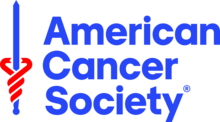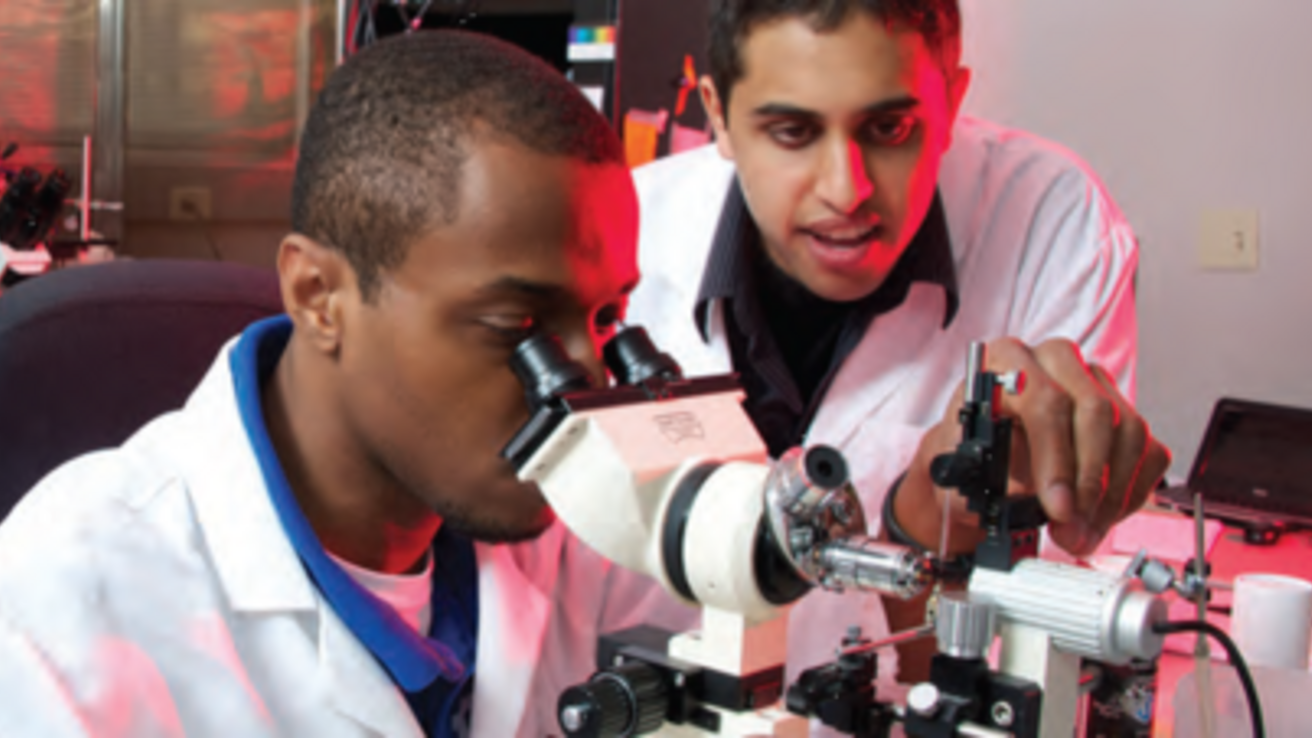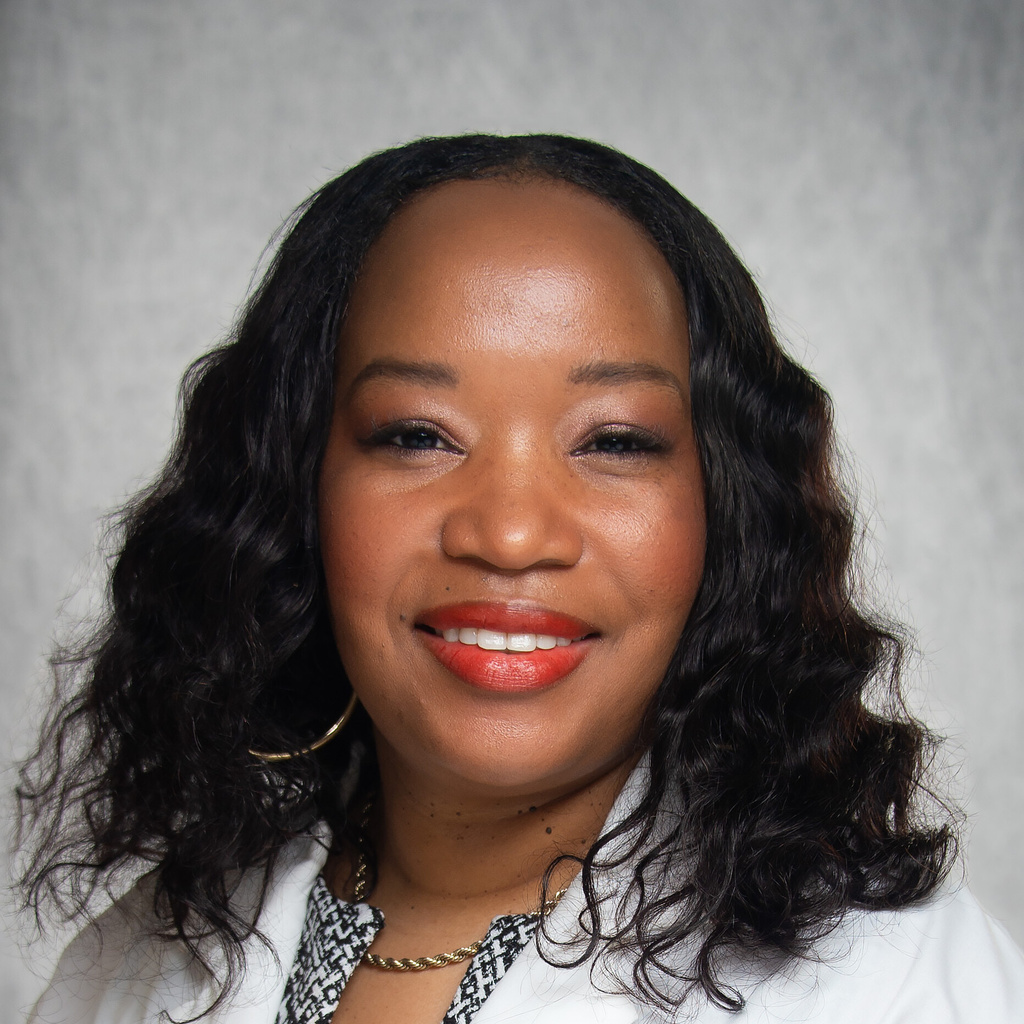Main navigation
We offer a fellowship program to prepare future cancer researchers through hands-on lab experience and mentorship.

The Iowa Cancer Research Experience (ICARE) program aims to expand the cancer research workforce, including individuals who intend to pursue a doctoral degree in biomedical science, data science, population health, public health, or a health profession. The goal of this program is to expose post-baccalaureate participants to cancer research and provide career development activities that will prepare them for a future in the field. The American Cancer Society helps fund this program.
Interested or have further questions, contact: HCCC-ICAREPostBac@uiowa.edu.
The application for the 2026 cycle is closed.
Our Commitment
We are dedicated to providing engaging research experiences and innovative educational activities to strengthen the biomedical workforce. A key priority of the ICARE program is to offer research opportunities and advanced coursework that will transform less competitive post-baccalaureate students into strong candidates for admission into research-focused, cancer-related doctoral degree programs. The ICARE program has a spectrum of program faculty to provide robust research experiences to trainees. Upon completing the ICARE program, our scholars will understand the culture of the biomedical research enterprise and have the skills necessary to tackle the challenges of pursuing a doctoral degree in a research-intensive setting.

$38K/year

Professional development

1-2 Years

Program Features
- Professional development
- Bootcamp Skill Building Series
- Mentorship from PhD students in cancer-related fields
- 1-2-year paid research experience (this appointment is for a limited duration, anticipated length of one to two years - the fellow can be rehired into another type of position through the competitive search process)
- Career coaching and advice on graduate and medical school applications or personal statements
Eligible individuals
- Are graduating from an undergraduate institution in 2025 or 2026
- Preference given to applicants with a GPA of at least 3.0; applications accepted with a minimum GPA of 2.5
- Intend to pursue a doctoral degree in biomedical science, data science, population health, public health, or a health profession
- Are looking to gain more research experience and help strengthen their graduate school or medical school applications
- May include those living with a disability, individuals who are first-generation high school or college graduates, those from rural or medically underserved communities, or from families who are socially or economically disadvantaged
- Have U.S. citizenship or permanent residency
Program benefits
For fellows:
- Working in the lab of a distinguished PI at a major national research institution provides invaluable experience and preparation for the commencement of advanced studies.
- Work experience before entering graduate school is highly desirable and helps strengthen an applicant's resume.
- Strong letters of reference are an anticipated outcome of a successful fellowship, as well as the ability to articulate experience gained.
- The laboratory experience fosters close interaction with faculty, postdoctoral scholars, and graduate research assistants, providing mentoring and professional development through departmental seminars and presentations.
For Holden Comprehensive Cancer Center:
- Advances the educational and research missions of the University by furthering the education and training of pre-doctoral, graduate, or professional students
- Increases the labor pool of potential scientists or clinicians for the State of Iowa and beyond
- Increases the cancer research workforce
- Brings/retains college graduates to the State of Iowa, furthering workforce development
- Alleviates administrative burden on faculty supervisors; reduces time to hire
- Allows for careful stewardship of scarce research dollars
Resources for applicants
Housing:
There are two different health plans for ICARE fellows to choose from and one dental plan, available through University of Iowa Human Resources.
FAQs
What research experiences and courses for skill development are available?
Programming for scholars includes high-quality immersive research experiences and workshops designed to ensure that trainees have acquired the skills necessary for being successful in the laboratory and ultimately to be highly competitive for top-tier graduate programs in biomedical science. While individual needs of ICARE fellows entering the program will ultimately determine what courses they take, they are generally expected to have 25% time available for programmatic commitments, seminars, and workshops.
Can ICARE Fellows have their student loans deferred?
ICARE Fellows are considered employees, and as such, are not enrolled in a degree-granting academic program. This precludes the use of any in-school deferment options. Fellows can request income-driven repayment plans, such as PAYE or RePAY, with potentially lower or zero monthly student loan payments based on discretionary income. All graduates have a six-month grace period before they are required to begin payments toward their federal student loan debt. Any applicant with questions related to student loans should contact their loan servicer.
Will there be an orientation?
ICARE fellows enter the program as a cohort in early August and spend the first week in social orientation activities to develop a sense of community on and off the UI campus. This orientation includes an overview by the program directors of the wide variety of available research within the ICARE Postbaccalaureate Program. All fellows participate in a Bootcamp Skill Building Series that addresses key topics that students in our cancer-related labs have provided feedback that they wish they had gotten more training on early in their career, including: how to find good mentors, how to be an effective mentee, grantsmanship, presentation skills, networking, writing skills, and learning about fellowship opportunities. Through attending weekly seminars, ICARE fellows get to know near-peer mentors (Cancer Biology graduate students). Peer mentorship is an important strategy for getting support and overcoming imposter syndrome. Additionally, Holden Comprehensive Cancer Center hosts monthly informal gatherings for ICARE fellows, ICARE mentors, and other trainees at UI to discuss student questions, share stories, and further instill a sense of belonging among our students.
How do I know which lab to join?
Fellows have access to several research labs with strong mentorship expertise spanning a broad range of cancer-related disciplines. ICARE leadership facilitates virtual meet-ups with potential mentors to help determine an appropriate lab fit. After completing orientation activities that provide fellows with an overview of research at Iowa and immediately foster their sense of belonging in the program (week 1), fellows will begin integrating into their research laboratory or group.
Will I need to complete my own research project?
Upon completion of the matching process, fellows will work with their research mentors to identify feasible projects that will help them to experience all aspects of the research process (including experimental design and planning, data collection, analysis, interpretation, and communication of findings). Mentors will be strongly encouraged to prioritize putting fellows on projects with both team and independent components for which a manuscript is planned to be submitted during the fellows’ two years in the program. Mentors will be instructed to be thoughtful about pairing the fellows with post-docs and grad students in the lab who have demonstrated emotional maturity and cultural awareness, and to continue to develop those mentors along these lines. The ICARE Advisory Team meets with fellows several times a year to provide career coaching and will work closely with the fellows to ensure there are effective avenues and outlets for resolving conflicts and working out problems during the laboratory phase of the program. This structure of mentorship also ensures that there are three faculty members who will have worked closely with the fellow and be able to write strong recommendation letters based on the fellow's performance in coursework and the laboratory.
Do I have to do any public speaking?
The ICARE Postbaccalaureate program supports public speaking by trainees as they prepare and deliver quarterly updates on their research project, and receive constructive feedback on their presentation skills and the science, as well as presentations at Holden's Research Seminar Series. Peers and faculty mentors evaluate the presentations and fill out a structured questionnaire that will be sent to both the scholar and their mentor. They will also have an opportunity to present a poster at the Holden Scientific Retreat each summer, at national and regional meetings (ex: ABRCMS, Iowa Cancer Summit), and at schools in Iowa with students without substantial research opportunities. At the conclusion of the program, trainees will have a well-developed and articulate presentation of their work that they can “take on the road” for graduate student interviews, will have learned how to “hear” and to answer questions, and be knowledgeable with respect to their research project.
How is support provided for time management and professionalism?
The ICARE program introduces and reinforces the concept of professionalism – e.g., fulfilling commitments, meeting deadlines, and fostering good workplace relationships. At the beginning of the program, orientation will emphasize the importance of timeliness, arriving at work prepared to work, proper submission of work records, following rules of attire, advance requests for vacation and time off for appointments, proper use of email and university resources, etc. We support fellows to develop effective time management and organization skills in the Bootcamp Skill Building Series portion of the program.
How do you really plan on building confidence?
Based upon prior postbac training programs, trainees have benefited from learning the importance of patience and perseverance, learning how to reach out to others for assistance, and developing self-confidence in their abilities. It is important for post-bac students to develop a “sense of belonging” with graduate students. Thus, in addition to participation in the Holden Research Seminar Series, the ICARE fellows will be invited to a series of annual social events in the Cancer Biology Graduate Program. Based on prior experiences, the near-peer mentor pairing will be critical to fostering that sense of belong through one-on-one relationship building, combined with networking with the graduate students in large and small group settings. Our fellows will be placed in laboratories with graduate students, they attend seminars with graduate students, they hear graduate students give work-in-progress talks, join lunches that graduate students have with outside speakers, and engage in programming and attend events sponsored by the Association of Multicultural Scientists, a graduate student-run organization that fosters a community of inclusion. This informal indoctrination of fellows into the graduate school culture sets the groundwork for understanding their expectations of doctoral students.
What is the culture of postbacs at University of Iowa?
There is a collective impact in the development of a culture of the postbaccalaureate experience on the University of Iowa campus. Holden Comprehensive Cancer Center (ICARE) and the Iowa Neuroscience Institute (iDREAM Postbacc Program) have intentionally worked together to information share, resource share, and problem solve. The cohorts of postbacs from ICARE and iDREAM interact frequently through the month Bootcamp Skill Building series and monthly social activities doing adventures in the community. In doing these monthly interactions, they see there is a larger community than just themselves. Campus leaders have recognized there is an opportunity to leverage these postbac pathway training programs to expand the scientific workforce available to investigators and have asked ICARE and iDREAM to serve as resources to other units on campus looking to establish similar postbac programs.
Program Directors

Jessica Sieren, PhD
Associate Director for Career Enhancement, Holden Comprehensive Cancer Center
Associate Professor of Radiology - Division of Cardiovascular and Thoracic Imaging

Andrean Simons-Burnett, PhD
Associate Professor of Radiation Oncology, Pharmaceutical Sciences, and Experimental Therapeutics
ICARE Advisory Team
The ICARE Advisory Team offers monthly career coaching, providing fellows with comprehensive advice, various perspectives, and valuable experiences as they navigate their future paths. The ICARE Advisory Team consists of:
ICARE Mentors
ICARE participants have the chance to collaborate with mentors across Holden Comprehensive Cancer Center. Mentors include:
- Mark Burkard, MD, PhD (Professor of Internal Medicine-Hematology, Oncology, and Blood and Marrow Transplantation)
- Christina Cho, PhD (Assistant Professor of Internal Medicine-Hematology, Oncology, and Blood and Marrow Transplantation)
- Sean B. Fain, PhD (Professor of Radiology-Division of Cardiovascular and Thoracic Imaging)
- Jill Kolesar, PharmD, MS, FCCP (Professor - Pharmaceutical Sciences and Experimental Therapeutics)
- Michael Petronek, PhD (Research Assistant Professor of Radiation Oncology)
- Amy Ryan, PhD (Associate Professor of Anatomy and Cell Biology)
- Douglas Spitz, PhD (Professor of Radiation Oncology)
- Jessica Tucker, PhD (Assistant Professor of Microbiology and Immunology)
These faculty members assist participants in a project aligned with their cancer research interests, offering direct exposure to the scientific process. The participants develop a formal oral presentation of their research project to present at a seminar and a poster to present at the annual Holden Comprehensive Cancer Center Scientific Retreat.
